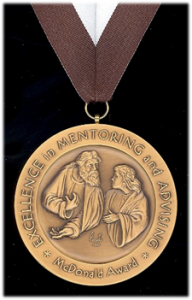 U. S. National Engineering Honor Society
U. S. National Engineering Honor Society
Knoxville, Tennessee
Founded in 1885, Tau Beta Pi’s purpose is to recognize those of distinguished scholarship and exemplary character as college undergraduates in the field of engineering, or by their attainments as alumni in the field of engineering, and to foster a “spirit of liberal culture” in United States engineering schools.
With a total initiated membership of approximately 636,000 men and women, Tau Beta Pi is the world’s largest engineering society. It is the only U. S. engineering honor society representing the entire engineering profession. Founded at Lehigh University in 1885, it also is the nation’s second-oldest honor society, after Phi Beta Kappa. There are currently 255 collegiate chapters and 50 active alumni chapters.
Tau Beta Pi’s Fellowship Program is a pioneering program among honor societies, started in 1928 for the advancement of engineering education and the profession. Since the beginning, its purpose has been to finance a year of graduate study at the colleges of their choice for a select group of members chosen for merit and need. These awards are as free of binding rules as possible, unlike many other fellowships that are designated for a specific purpose, often making it difficult for students with original ideas to find one exactly fitted to their needs. Tau Beta Pi fellows are free to pursue graduate work in any field which enables them to contribute to the engineering profession.
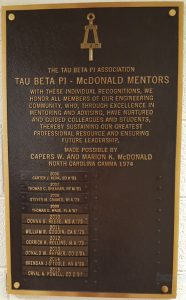 The Tau Beta Pi Association Scholarship Program was established in 1998, and since that time, awards have been made to 2,798 Scholars for their senior year of full-time engineering study.
The Tau Beta Pi Association Scholarship Program was established in 1998, and since that time, awards have been made to 2,798 Scholars for their senior year of full-time engineering study.
Working within the local communities of Tau Beta Pi chapters, members are seeking to impact positively the pursuit of careers in computational fields in the U. S. through enhanced preparation of students in the K-12 system in mathematics and science. The association is seeking development of interventions which will increase the number of students in the K-12 system who will be adequately equipped to pursue careers in various computational fields upon graduation. These embody the kinesthetic or “hands-on” approach to instruction and learning. This is being used in the classroom for general instruction and in engineering labs for demonstration of math and science concepts. For classroom instruction delivery, math and science teachers are being trained and supported in the use of these tools, and engineering projects designed by Tau Beta Pi members are being used for engineering lab demonstrations.
Website: http://www.tbp.org
CONTACT: Director of Communications and Development, Tau Beta Pi Engineering Honor Society Headquarters, 508 Dougherty Hall, University of Tennessee, Knoxville, TN 37996-2215; Voice: 865-546-4578

There are many reasons to learn more about our honorees. You may benefit from knowing more about these outstanding individuals and perhaps become a better mentor or advisor yourself. You may wish to add your own congratulations! You may want to renew a former acquaintance.

A sincere effort is maintained to keep this information up to date. However, the individual’s or institutions’ own web sites and directory listings should also prove helpful
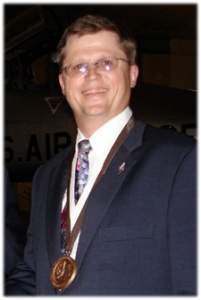
2006
Carter J. Kerk, Ph.D., P.E. – First Tau Beta Pi Honoree
South Dakota Alpha Chapter
Associate Professor,
South Dakota School of Mines and Technology;
Rapid City, South Dakota

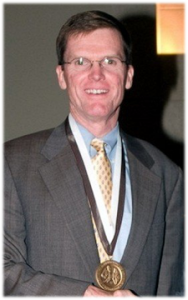
2007
Thomas C. Sheahan, Sc.D., P.E.
Massachusetts Epsilon Chapter
Professor and Chair,
Department of Civil and Environmental Engineering,
College of Engineering, Northeastern University;
Boston, Massachusetts
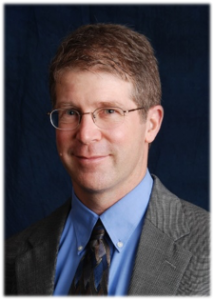
2008
Steven M. Cramer, Ph.D.
Wisconsin Alpha Chapter
Professor and Associate Dean for Academic Affairs,
Department of Civil and Environmental Engineering,
College of Engineering, University of Wisconsin;
Madison, Wisconsin

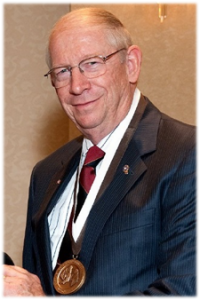
2009
Thomas E. Wade, Ph.D.
Florida Gamma Chapter
Professor and Associate Dean for Research,
Department of Electrical Engineering,
College of Engineering, University of South Florida;
Tampa, Florida

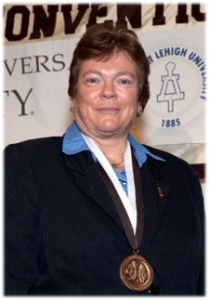
2010
Donna S. Reese, Ph.D.
Mississippi Alpha Chapter
Professor and Associate Dean for Academics,
Department of Computer Science and Engineering,
Bagley College of Engineering, Mississippi State University;
Mississippi State, Mississippi

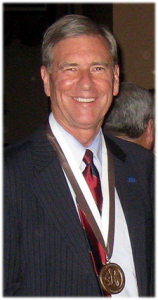
2011
William R. Goodin, Ph.D.
California Epsilon Chapter
Director, Short Course Program and Technical Management Program,
University of California Los Angeles (UCLA) Extension,
Los Angeles, California
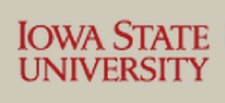
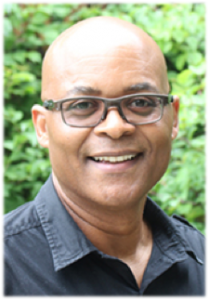
2012
Derrick K. Rollins, Sr., Ph.D.
Iowa Alpha Chapter
Professor, Department of Chemical and Biological Engineering,
College of Engineering, Iowa State University;
Ames, Iowa
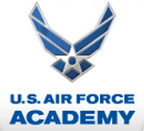
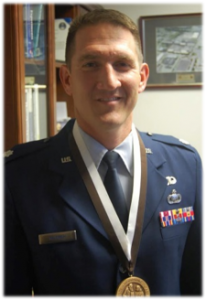
2013
Lt. Col. Donald W. Rhymer, Ph.D.
Colorado Zeta Chapter
Professor and Head of Engineering Mechanics,
United States Air Force Academy;
Colorado Springs, Colorado

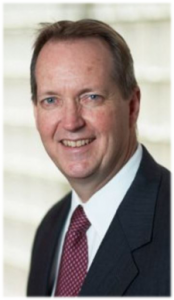
2014
Brendan J. O’Toole, Ph.D.
Nevada Beta Chapter
Professor of Mechanical Engineering,
Director, Mendenhall Innovation Program and Center for Materials and Structures, Department of Mechanical Engineering, Hughes College of Engineering,
University of Nevada; Las Vegas, Nevada

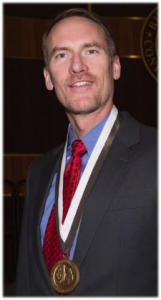
2015
Lt. Col. Orval A. Powell, Ph.D., P.E.
Colorado Zeta Chapter
Associate Professor of Engineering Mechanics,
Deputy for Curriculum and Assessment,
United States Air Force Academy;
Colorado Springs, Colorado
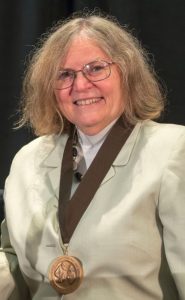
2016
Antonette M. Logar, J.D., Ph.D.
South Dakota Alpha Chapter
Professor,
Department of Mathematics and Computer Science,
South Dakota School of Mines and Technology;
Rapid City, South Dakota
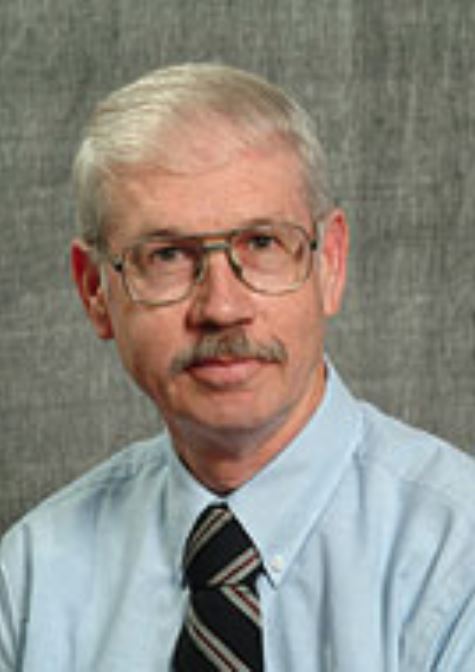
2017
Daniel F. Dolan, Ph.D.
South Dakota Alpha Chapter
Senior Lecturer,
Department of Mechanical Engineering,
South Dakota School of Mines and Technology;
Rapid City, South Dakota

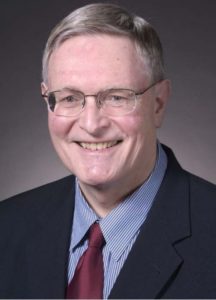
2018
James C. Hill, Ph.D.
Iowa Alpha Chapter
Professor Emeritus, Department of Chemical and Biological Engineering,
College of Engineering, Iowa State University;
Ames, Iowa
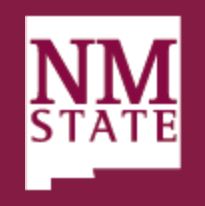
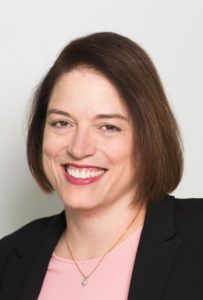
2019
Martha C. Mitchell, Ph.D.
New Mexico Alpha Chapter
Professor, Department of Chemical and Materials Engineering,
College of Engineering, New Mexico State University;
Las Cruces, New Mexico

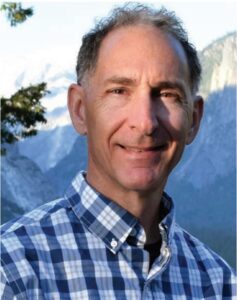
2020
Dean S. Papajohn, Ph.D., P.E.
Arizona Alpha Chapter
Associate Professor of Practice, Department of Civil and Architectural Engineering and Mechanics,
College of Engineering, University of Arizona, Tucson, Arizona
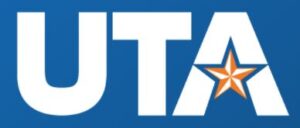
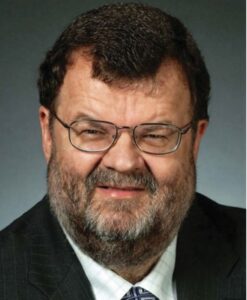
2021
James C. Williams, Ph.D., P.E.
Texas Eta Chapter
Professor, Department of Civil Engineering, College of Engineering, University of Texas at Arlington, Texas

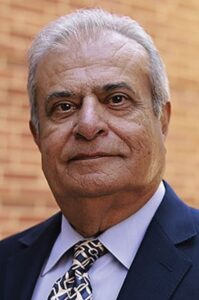
2022
Asad M. Madni, Ph.D., C.Eng.
California Epsilon Chapter
Distinguished Adjunct Professor and Distinguished Scientist, Electrical and Computer Engineering Department,
University of California Los Angeles (UCLA), Los Angeles, California
Former President, COO and CTO of BEI Technologies,
Former Chair, President and CEO of Systron Donner Corp.
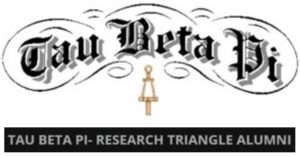
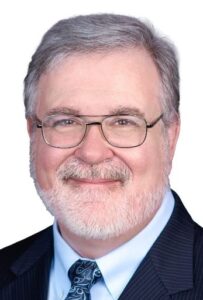
2023
Richard J. Spontak, Ph.D.
Tau Beta Pi Research Triangle Alumni Chapter of North Carolina,
Pennsylvania Beta Chapter (Pennsylvania State University, 1983)
Distinguished Professor, Chemical and Biomolecular Engineering, and Materials Science and Engineering;
North Carolina State University, Raleigh, North Carolina
Award Program Institutions
The program is endowed to operate through six supporting institutions.
An international recognition is part of the annual society-level award programs of ASME. U. S. national honorees are recognized through the engineering honor society, Tau Beta Pi. Other outstanding mentors are selected annually through similarly-endowed institutional programs at Duke University, Harvard University, Johns Hopkins University, and Massachusetts Institute of Technology – universities where sponsor Capers McDonald has been privileged to have been engaged as a learner, either as a student or faculty member.
Aside from simply learning more about each of these organizations, there are many reasons to contact our award program institutions! You may want to learn more and become a better mentor or advisor. You may wish to know the procedure for nominating an excellent mentor for one of the awards. Or, you may have some interest in contributing to the celebration by volunteering some of your time or funds to enhance the recognitions. All are welcomed!
Aside from simply learning more about each of these organizations, there are many reasons to contact our award program institutions! You may want to learn more and become a better mentor or advisor. You may wish to know the procedure for nominating an excellent mentor for one of the awards. Or, you may have some interest in contributing to the celebration by volunteering some of your time or funds to enhance the recognitions. All are welcomed!
A sincere effort is maintained to keep this information, including contacts, up to date. However, the institutions’ own web sites and directory listings should also prove helpful.
Connections Among the Six Institutions
In addition to their individual dedication to excellence in engineering and the applied sciences; to innovation, creativity and leadership; and to a broad social perspective on the role of engineers, these six institutions are prominent among those Capers McDonald has enjoyed working and learning in throughout his life – either as a student, faculty member or volunteer.
In the School of Engineering at Duke University, Capers earned a Bachelor of Science in Engineering (BSE) degree with majors in Biomedical Engineering and Zoology in 1974. He completed a Master of Science in Mechanical Engineering (MSME) degree at MIT in 1976, conducting his thesis work with fellow engineers at MIT and orthopedic surgeons at Children’s Hospital Boston. Following five years of employment, Capers concluded his formal education – to date – with a Master in Business Administration (MBA) degree from Harvard Business School in 1983.
Immediately following 12 years as President and CEO of BioReliance Corporation in 2004, Capers became an Executive in Residence and faculty member with Johns Hopkins University, teaching in graduate programs that in 2007 became parts of the newly-chartered Carey Business School.
Capers was inducted into Tau Beta Pi, the national engineering honorary, following his third undergraduate year at Duke and served as the student Chapter President during 1973-74. He is a Life Member of ASME, which for many years was known as the American Society of Mechanical Engineers.
PAGE IMAGES (Not Yet Described):
First Row: (L) Initial Tau Beta Pi honoree, Dr. Carter Kerk, receiving his medal from Marion McDonald during the association’s 2006 national convention in Colorado. (C) Tau Beta Pi President, Prof. Larry Simonson, congratulating awardee Prof. Tom Sheahan during the 2007 convention in Michigan. (R) Prof. and Associate Dean Donna Reese, the first woman to receive the Tau Beta Pi McDonald Mentoring Award, accepting her medal from Marion McDonald during the 125th-year convention celebration in Pennsylvania.
Second Row: (L) Associate Prof. Lt. Col. Orval Powell receiving the 2015 Tau Beta Pi national award in Rhode Island from Dr. George Morales, a Tau Beta Pi Engineering Futures Facilitator. (C) Tau Beta Pi 2009 honoree, Prof. Thomas Wade, and Mrs. Wade at the convention in New Jersey. (R) Prof. Antonette Logar being presented her Tau Beta Pi McDonald Mentoring Award by Dr. George Morales during the 2016 national convention in California.
